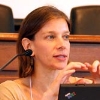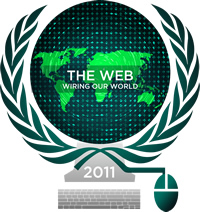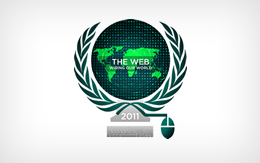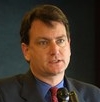Introduction
The 35th annual UNIS-UN Conference, which is a unique collaboration between the United Nations International School (UNIS) and the United Nations, was held on March 3 - 4, 2011, in the General Assembly Hall of the United Nations. The theme of the conference was "The Web: Wiring our World."
In the last decade or so, the Internet has undertaken a key role in every aspect of human life. People all over the world rely on the Internet for information, entertainment, communication, business, social interaction, and many other facets of their lives. The benefits of the development of internet technologies are plenty, but accompanying these benefits are numerous concerns. Regardless of whether it is viewed in a positive or negative light, the advent of the Internet has effectively revolutionized the lives of people in both the developed and developing countries.
The UNIS-UN conference concentrated on the evolving role of the Internet, and its far-reaching implications in different areas of society. The goal of the conference was to provide insight into a phenomenon that society has universally embraced without fully understanding its transformational powers. The conference examined issues such as the role of the Internet in political movements; the moral and ethical questions concerning the privacy of information; the potential use of the Internet during conflicts such as cyber warfare; and on a more theoretical note, how the Internet has affected our thought processes and our worldview.
Visiting Schools
This year, we had participants from 48 schools representing 19 countries:
 |
Bermuda | The Berkeley Institute, Cedarbridge Academy, Mount Saint Agnes Academy, Saltus Grammar School, Warwick Academy |
 |
Canada | St. George's School |
 |
China | Beijing Royal School, Chengdu Experimental Foreign Languages School (West Campus), Chengdu No.12 High School, Chengdu Shude High School, Guiyang No.1 High School, The Second High School Attached to Beijing Normal University, Shanghai Foreign Language School |
 |
England | Mulberry School for Girls |
 |
Finland | Helsingin Suomalainen Yhteiskoulu |
 |
Germany | Alfred Wegener Schule Kirchhain, Altes Kurfuerstliches Gymnasium, Hohe Landesschule Germany, Oberstufenkolleg Bielefeld |
 |
Ghana | St. Augustine College |
 |
India | Calcutta International School, Maria's Public School |
 |
Jamaica | Campion College, Excelsior Community College, Jamaica College, Munro College, Queen's High School, St. Hugh's High School |
 |
Japan | Haguro High School, Joho High School, Senzoku Gakuen High School, Yamate Gakuin High School, Yokohama Municipal Higashi Senior High School, Yokohama Shogyo High School |
 |
Luxembourg | International School of Luxembourg |
 |
Mexico | Colegio Carol Baur (Fundacion Cultural Baur) |
 |
Morocco | The American School of Tangier |
 |
Norway | Berg VGS, Oslo Katedralskole |
 |
Singapore | Paya Lebar Methodist Girls' School (Secondary) |
 |
Spain | Frederic Mistral Tecnic Eulalia |
 |
Sweden | Frans Suell High School |
 |
Togo | British School of Lome |
 |
United States | Claremont Prep, Houston High School, Lakeridge Highschool, Newark Collegiate Academy, Razi School |
Speakers

Nicholas Negroponte
Official website »Founder and Chairman Emeritus, MIT Media Lab; Founding Chairman, One Laptop per Child

Judith Donath
Official website »Faculty Fellow, Berkman Center for Internet and Society at Harvard University; Founding Director, Sociable Media Group at MIT Media Lab

Clay Shirky
Official website »Author of Cognitive Surplus: Creativity and Generosity in a Connected Age and Here Comes Everybody: The Power of Organizing without Organizations

Jon Lawhead
Columbia University Grad Student (Philosophy of Technology)
Student Debate
RESOLVED, that providers of wired and wireless Internet should grant access to all websites and all information transmitted over the Internet on an equal basis.
The Student Debate represents a longstanding tradition at UNIS-UN. Students from visiting schools as well as UNIS are given an opportunity to argue for or against a controversial and global issue. Last year's debate was on the topic of network neutrality, which concerns one's ability to access information over the internet. Network neutrality refers to the principle that all content on the internet should be free and equally accessible. Some argued, however, that internet service providers should have the right to charge Web site operators for faster access to their websites, or the use of certain applications, such as videos and instant messaging. Others responded that the Internet was meant to be an open medium, and that charging additional fees would have the effect of stifling innovation. The outcome of this decision have had profound consequences for what has become an integral part of our daily lives: the use of the Internet.
Student Panel
Discuss what you believe to be a significant impact, either positive or negative, of the Internet on your country/society. Possible topics include, but are not limited to, the effect of the Internet on cultural values, politics, education, the media and entertainment. Be creative! The Internet has influenced society in countless ways, and our goal for this panel discussion is to understand how the Internet has affected different parts of the globe.
Another longstanding tradition at UNIS-UN is the Student Panel, where students are given an opportunity to speak in detail about one particular aspect of the conference topic. Our aim was for the Student Panel to provide a personal insight into the topic. Students were asked to describe what they think the Internet's greatest impact on their own country, community, society or culture has been. This could have been anything from a personal experience at school to a political upheaval. Last year's Panel Discussion gave a firsthand account of how the Internet has affected different parts of the globe.
Day for Cultural Exchange
We are delighted to inform you that last year's Conference incorporated a successful UNIS-UN Day for Cultural Exchange!
Throughout the first half of Wednesday, March 2nd, visiting students attended classes at UNIS with their host UNIS students. In classes they engaged in discussions, thereby sharing their unique experiences, perspectives, and insights from all around the world with one another.
The second half of the day featured cultural performances in the Sylvia H. Fuhrman Auditorium at UNIS. Roughly fifteen student groups from visiting schools and UNIS performed dances, acted out skits, showed videos, played musical pieces, and more. Through the medium of performance, they presented the cultures of their communities, regions, and countries.
We believe UNIS-UN's newest component was a fun, exciting and worthwhile addition to the overall program!








